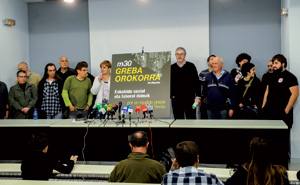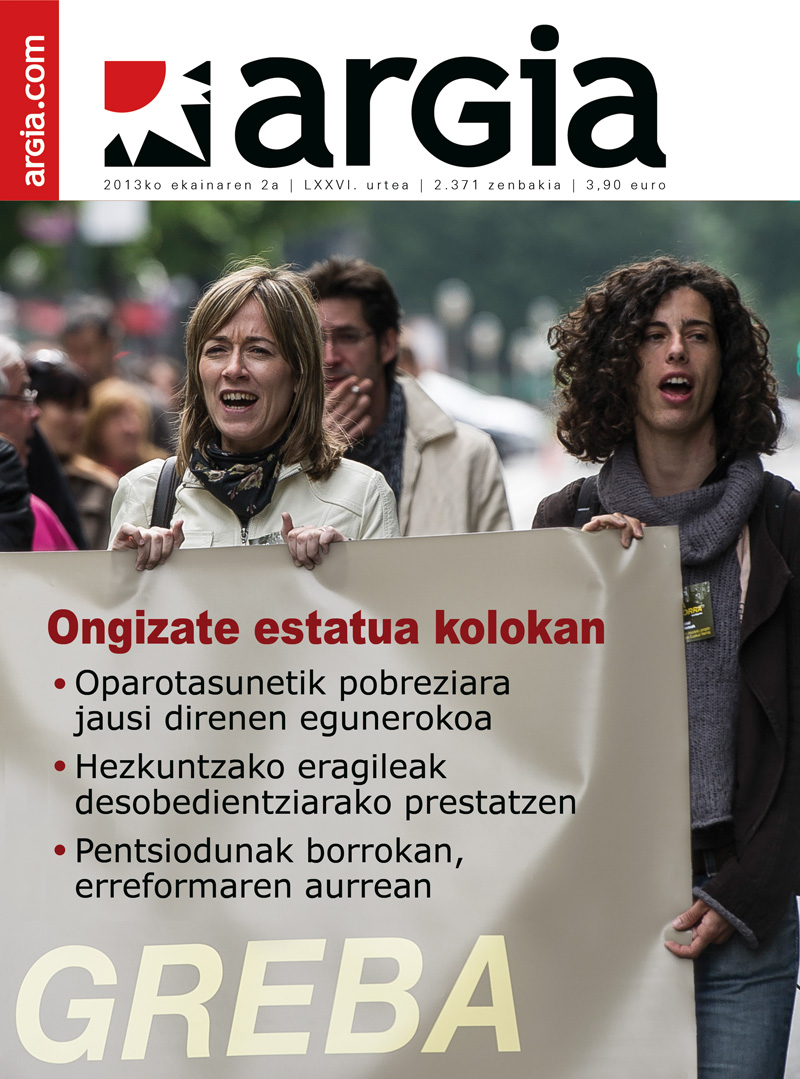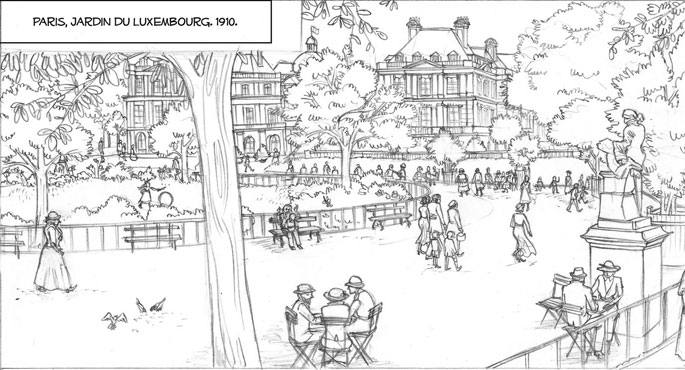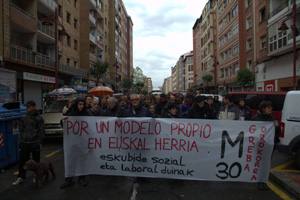Yes, it's a class struggle.

One of the main questions that arise every time the trade unions make an appeal is whether the general strike can solve something at a given time and, for different reasons, the answers are not entirely clear. On the one hand, the objective of a general strike is not to solve anything at the moment, but the working class and a manifestation of the strength of the middle class to influence the power relations in society. On the other hand, the economic and institutional powers that protect the upper classes are also immersed in this daily struggle, in which, in addition to demonstrating superiority, they have demonstrated so far.
Interestingly, the right to strike is often sold as a social achievement by today’s liberal democracies, such as the achievement of the working class in class struggle. They're things that have been learned in school and in universities, but that's it, they're things that many people want as things from the past. The same is true of elections and universal suffrage, they are social and political achievements, but they are sold as the ultimate expression of democracy: “the feast of democracy.” When the right to strike comes into force, it is sold from the State’s speakers as undemocratic: it is
a confrontation, it will not solve anything, it is contrary to reality, there will be nothing outside the institutions… The class struggle serves to explain the political and social changes of the past, but apparently to explain the current one. Or that would be enough.
The illustrious neoliberal ideologist Francis Fukuyama announced the end of the story after the collapse of the bloc of the Soviet Union: a phrase intended to represent the end of the ideological struggle, the total victory of EE.UU. And capitalism, as if from there, there's no more than building happiness. This preponderance, however, meant nothing more than the rise of the current crisis, the greatest of capitalism after the Great Crisis of the twentieth century. And the truth is that the forces of capitalism have been organised very well to defend the interests of money well even in the most severe crisis, and that the working and middle classes cannot cope with the offensive of the last two of them cadas.No is just a speech, and that looks better than anywhere else
in Europe. Between 1945 and 1975, the golden years of capitalism lived in western Europe: deepening the welfare society model, very broad sectors of society reached the highest standard of living achieved until then in the world. And returning to academia and school, the explanation is quite consensual: technological development was key to economic growth, and the pressure of the working forces within the states and the pressure of the communist bloc were key in the effort of the welfare state to redistribute the riqueza.En the global context is producing spectacular economic growth in several
countries: China, India, Brazil, Russia, South Africa -- and as a result, over the next 20 years, over 3,000 million people will move into this broad, flexible middle class sector. There is no doubt that this will greatly influence the climate, the use of resources, the need for energy... and also the strength relationship of class struggles. In the 1990s, 1500 million people joined the world labour market, mainly from the China, India and the former USSR bloc. This greatly influenced the global labor market, lowering the price of the workforce and, above all, pushing the conditions of the working class in developed countries to worsen. According to the US NIC (National Intelligence Council, an organization that conducts geopolitical and economic studies of the cia), Western countries will lose half of their economic strength by 2030 (from 56% to 25%). Who knows exactly if that is the case, but this trend does. And in the face of that, does anyone think that the wealthiest have to accept that huge loss of money? They have their tools and they're in use.
Strike, mobilisation, collective bargaining, elections, social movements, the social economy, the high participation of states in the economy, research and development, the increased tax burden ... In all these areas there will be a class struggle that lives intensely at the beginning of the twenty-first century.
Krisia hasi zenetik Hego Euskal Herrian egindako zortzigarren greba orokorrak sektore publikoan izan du erantzunik handiena. Iazkoak baino erantzun txikiagoa izan arren, grebaren balorazio "ona" egin dute sindikatuek. "Borrokatzen denean gutxi galtzen da;... [+]
Igara eta Ibaeta beti izaten dira oso diferenteak grebetan. Poligonoan enpresa batzuk itxita bai, baina greba ez da batere orokorra izan. EHUren campusean argazki diferentea, ia inor ez zebilen fakultateetan, eraikinak zabalik, Kimika fakultatean bizpahiru pertsona lanean,... [+]
Gipuzkoako langabezia tasarik handiena duen eskualdea da (Irun eta Hondarribia hartzen dituen) Behe Bidasoa: %17,88koa izan da apirilean, 6.547 langabe guztira. Bereizita, hondarribiarren %13,1 dago langabezian eta irundarren %19,3 (Gipuzkoan, Soraluzek bakarrik du Irunek... [+]
Maiatzaren 30ekoak ekainaren 1ean izango du bigarren zatia. Hego Euskal Herrian mugimendu sindikalaren zati nagusiak bestelako mugimendu sozial multzo zabalarekin antolatutako grebaren biharamonean, ekainaren 1an murrizketen eta horien kudeatzailea den Troikaren kontrako... [+]
Hezkuntza arloko sindikatu nagusiak, STEE-EILASek, bat egin du greba orokorraren deialdiarekin.
Gehiengo sindikalak Hego Euskal Herrian greba orokorra deitu du gaurko. Egunaren jarraipena egiten ari gara albiste honen barnean. Egin klik izenburuan irudi, bideo eta txioak ikusteko orduz ordu antolatuta. Webgunean, bestetik, grebari buruzko informazioa topatuko duzu gaur.
This week, on 30 May, most trade unions have called on the workers, pensioners and general citizens of Hego Euskal Herria to join a general strike against economic and social cuts. These are the cutbacks imposed by Madrid and Brussels, and by the docile governments of Gasteiz... [+]
























